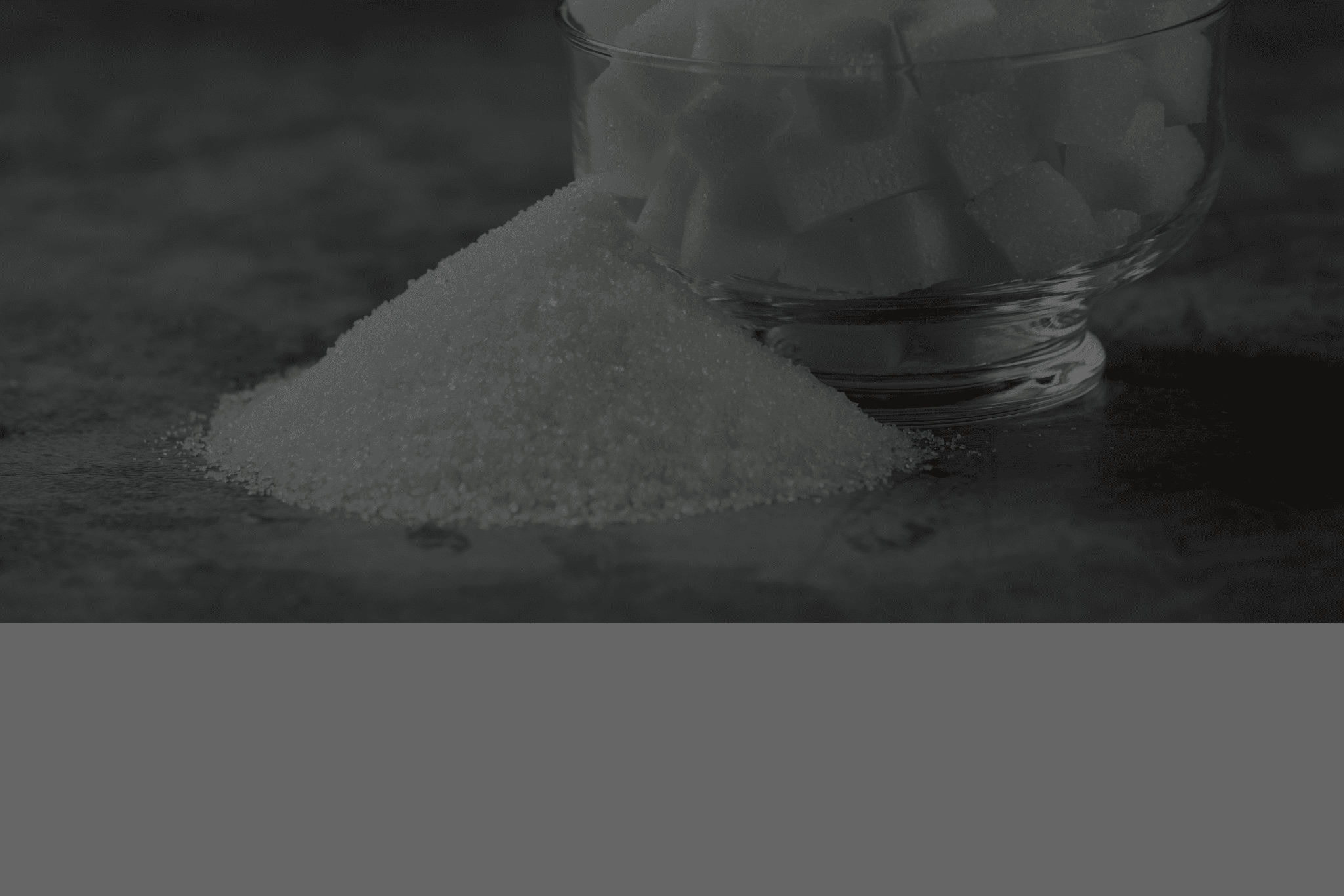S
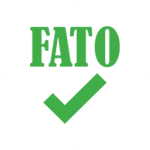
Most industrialized food have little, or no sugar added
Sales statistics demonstrate that most industrialized food marketed by the industries do not have sugar added in its composition. Even among the categories that traditionally contain sugar, such as, for example, chocolates, some dairy products and non-alcoholic beverages, there are diet/light, versions considering that the industry follows the population demand to reduce the consumption of sugar.
Check the content on unprocessed food of industrialized food to learn more:
- The studies conducted by Ital, about the content of sugar stated in the labels of many industrialized products demonstrate that, generally, they vary significantly regarding the quantity and that there are sugar-free versions.
- The trend in reducing the quantity of sugar added to the industrialized food.
- Challenges for the sugar reduction: the food habits.
- Challenges for the sugar reduction: functions in the processing.
- Corporate initiatives to reduce sugar added to the products
- Curiosities about the sugar.
Cookies
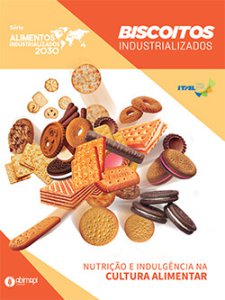 In 2020, Ital and ABIMAPI conducted a study about nutrients and ingredients of 243 products marketed in Brazil, obtained the following results. The statement of content of sugar was identified in 20 cookies of the sample of 182 sweet cookies. The quantity of sugar vary significantly according to the type of product, with lower value observed for a cookie with topping (4.0 g/portion of 100 g) and the higher for a filled cookie (46.7 g/portion of 100 g). Sugar added to the products analyzed vary among sucrose, brown sugar, demerara sugar, molasses, corn glucose and honey.
In 2020, Ital and ABIMAPI conducted a study about nutrients and ingredients of 243 products marketed in Brazil, obtained the following results. The statement of content of sugar was identified in 20 cookies of the sample of 182 sweet cookies. The quantity of sugar vary significantly according to the type of product, with lower value observed for a cookie with topping (4.0 g/portion of 100 g) and the higher for a filled cookie (46.7 g/portion of 100 g). Sugar added to the products analyzed vary among sucrose, brown sugar, demerara sugar, molasses, corn glucose and honey.
Cakes
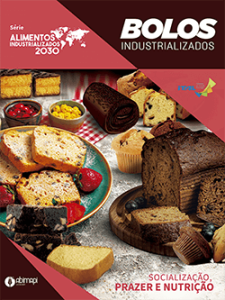 In 2021, Ital and ABIMAPI conducted a study about nutrients and ingredients of 210 products marketed in Brazil, obtained the following results. Generally, cakes, industrialized or not, usually contain SUGAR in its preparation. However, there are products with reduction in the content of sugar and also the “sugar-free” recipes. Sugar added to the products analyzed vary among sucrose, brown sugar, demerara sugar, molasses, corn glucose and honey.
In 2021, Ital and ABIMAPI conducted a study about nutrients and ingredients of 210 products marketed in Brazil, obtained the following results. Generally, cakes, industrialized or not, usually contain SUGAR in its preparation. However, there are products with reduction in the content of sugar and also the “sugar-free” recipes. Sugar added to the products analyzed vary among sucrose, brown sugar, demerara sugar, molasses, corn glucose and honey.
Yogurts
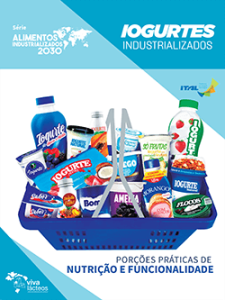 In 2020, Ital and Viva Lácteos conducted a study about nutrients and ingredients of 150 products marketed in Brazil, obtained the following results. The quantity of SUGAR vary significantly according to the type of product. In the sample of 29 products with statement of SUGAR, the average quantity was 7.7 g/100 g of products. The product with the lowest value presented 2.0 g/100 g and the one with the highest value was 16.0 g/100 g. The nutritional tables of 150 industrialized yogurts revealed that most of the products do not exceed 10% of the recommended daily needs of 300 g of carbohydrates. It is important to note that, in the total of carbohydrates present in the yogurt, there is a percentage of lactose, disaccharide naturally present in the milk.
In 2020, Ital and Viva Lácteos conducted a study about nutrients and ingredients of 150 products marketed in Brazil, obtained the following results. The quantity of SUGAR vary significantly according to the type of product. In the sample of 29 products with statement of SUGAR, the average quantity was 7.7 g/100 g of products. The product with the lowest value presented 2.0 g/100 g and the one with the highest value was 16.0 g/100 g. The nutritional tables of 150 industrialized yogurts revealed that most of the products do not exceed 10% of the recommended daily needs of 300 g of carbohydrates. It is important to note that, in the total of carbohydrates present in the yogurt, there is a percentage of lactose, disaccharide naturally present in the milk.
Plant-based beverages
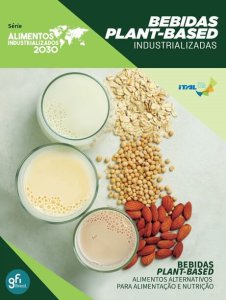 In 2022, Ital and Good Food Institute conducted a study about nutrients and ingredients of 178 products marketed in Brazil, obtaining the following results. The quantity of SUGAR vary significantly according to the type of product. In the samples analyzed of 106 products, 94.3% of these beverages contain quantities up to 15 g/200 ml, 67.9% up to 10 g/200 ml and 36.8% up to 5 g/200 ml. There are several products with reduction in the sugar content, no sugar addition and contained only sugar naturally present in the “zero-sugar” ingredients, result of the increasingly trend to control the food diet, as highlighted in the chapter about trends. Sugar added in the analyzed products vary among sugar, organic sugar, coconut sugar, organic demerara sugar, liquid sugar and glucose syrup.
In 2022, Ital and Good Food Institute conducted a study about nutrients and ingredients of 178 products marketed in Brazil, obtaining the following results. The quantity of SUGAR vary significantly according to the type of product. In the samples analyzed of 106 products, 94.3% of these beverages contain quantities up to 15 g/200 ml, 67.9% up to 10 g/200 ml and 36.8% up to 5 g/200 ml. There are several products with reduction in the sugar content, no sugar addition and contained only sugar naturally present in the “zero-sugar” ingredients, result of the increasingly trend to control the food diet, as highlighted in the chapter about trends. Sugar added in the analyzed products vary among sugar, organic sugar, coconut sugar, organic demerara sugar, liquid sugar and glucose syrup.
Juice and other non-carbonated beverages
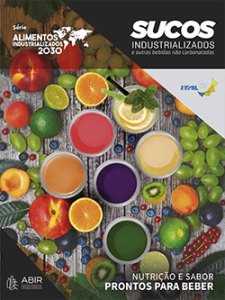 In 2020, Ital and ABIR conducted a study about nutrients and ingredients of 217 products marketed in Brazil, obtained the following results. From the total of the sample of 217 products, 88 products contained a quantity of sugar in the label nutritional information. The quantities of SUGAR from juices, nectars, and refreshments vary a lot according to the type of fruits and vegetables naturally present in their composition, from 2.0 g/200 ml up to 32.7 g/200 ml. Sugar added to the products analyzed vary among sucrose, glucose fructose.
In 2020, Ital and ABIR conducted a study about nutrients and ingredients of 217 products marketed in Brazil, obtained the following results. From the total of the sample of 217 products, 88 products contained a quantity of sugar in the label nutritional information. The quantities of SUGAR from juices, nectars, and refreshments vary a lot according to the type of fruits and vegetables naturally present in their composition, from 2.0 g/200 ml up to 32.7 g/200 ml. Sugar added to the products analyzed vary among sucrose, glucose fructose.
Ice creams
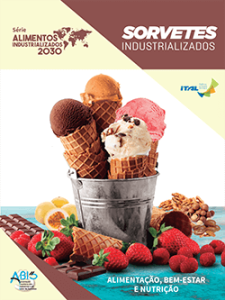 In 2021, Ital and ABIS conducted a study about nutrients and ingredients of 180 products marketed in Brazil, obtained the following results. In the NUTRITIONAL LABEL, the statement of content of SUGAR was identified in 55 ice creams of the total sample (180 products). The quantity of sugar vary significantly according to the type of ice cream, with lower value observed for a chocolate flavor ice cream and zero-sugar malt (4.8 g/portion of 100 g) and the higher Neapolitan type ice cream for diets with lactose restriction (36.7 g/portion of 100 g). It was observed that, in the ingredient list, sugar was listed in 92.2% of the products of the sample.
In 2021, Ital and ABIS conducted a study about nutrients and ingredients of 180 products marketed in Brazil, obtained the following results. In the NUTRITIONAL LABEL, the statement of content of SUGAR was identified in 55 ice creams of the total sample (180 products). The quantity of sugar vary significantly according to the type of ice cream, with lower value observed for a chocolate flavor ice cream and zero-sugar malt (4.8 g/portion of 100 g) and the higher Neapolitan type ice cream for diets with lactose restriction (36.7 g/portion of 100 g). It was observed that, in the ingredient list, sugar was listed in 92.2% of the products of the sample.
Chocolates
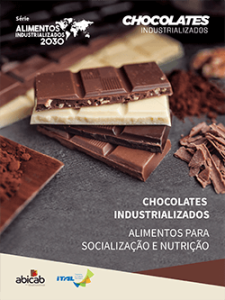 In 2022, Ital and ABICAB conducted a study about nutrients and ingredients of 483 products marketed in Brazil, obtaining the following results. On the whole, chocolates usually contain TOTAL SUGAR in its preparation. However, there are several products with reduction in the sugar content, and even “zero-sugar” chocolates, result of the increasingly trend to control the sugar in the food diet. Sugar added to the products analyzed vary among conventional and organic sugar, conventional and organic demerara sugar, sugarcane molasses, honey, caramel, glucose syrup and corn.
In 2022, Ital and ABICAB conducted a study about nutrients and ingredients of 483 products marketed in Brazil, obtaining the following results. On the whole, chocolates usually contain TOTAL SUGAR in its preparation. However, there are several products with reduction in the sugar content, and even “zero-sugar” chocolates, result of the increasingly trend to control the sugar in the food diet. Sugar added to the products analyzed vary among conventional and organic sugar, conventional and organic demerara sugar, sugarcane molasses, honey, caramel, glucose syrup and corn.
Peanut
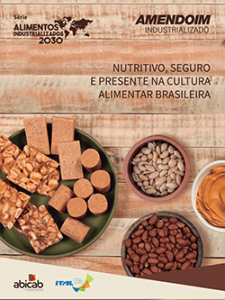 In 2022, Ital and ABICAB conducted a study about nutrients and ingredients of 416 products marketed in Brazil, obtained the following results. Sweet peanut products usually have SUGAR in its preparation. However, there are several products with reduction in the sugar content, and even “zero-sugar” peanut candies, result of the increasingly trend to control the sugar consumption in the food diet. Sugar added in the analyzed products vary among white, brown, demerara sugar, coconut sugar, sugarcane juice, glucose syrup and honey.
In 2022, Ital and ABICAB conducted a study about nutrients and ingredients of 416 products marketed in Brazil, obtained the following results. Sweet peanut products usually have SUGAR in its preparation. However, there are several products with reduction in the sugar content, and even “zero-sugar” peanut candies, result of the increasingly trend to control the sugar consumption in the food diet. Sugar added in the analyzed products vary among white, brown, demerara sugar, coconut sugar, sugarcane juice, glucose syrup and honey.


